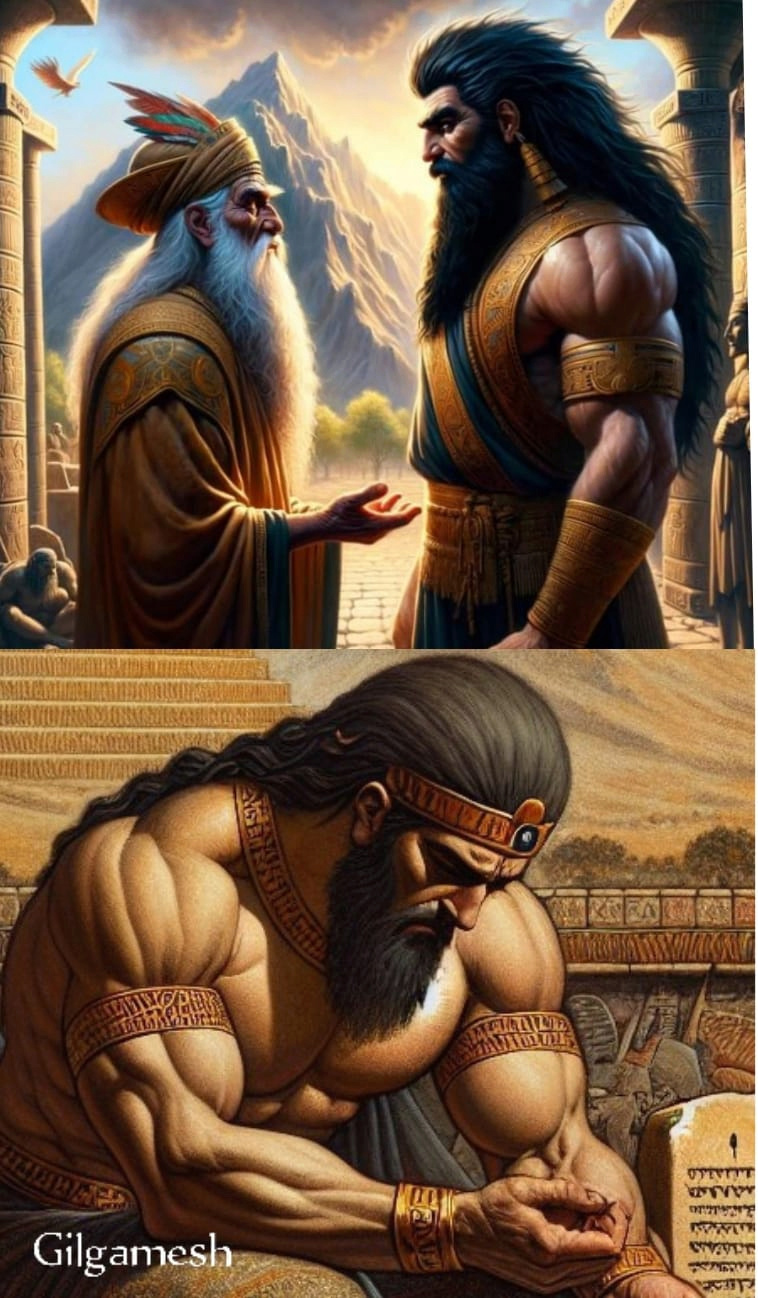The Epic of Gilgamesh

The Epic of Gilgamesh was widely popular in antiquity, with its influence evident in the later literary worlds of the Homeric epics and the Hebrew Bible. However, in modern times, even the most knowledgeable readers of ancient literature may find it difficult to determine the epic's plot or name its heroes.
?The contemporary cultural oblivion of one of the greatest works of ancient literature in the world
While many of the great literary works of ancient Greece and Rome have been the subject of constant study throughout the development of Western culture, the Epic of Gilgamesh comes from a forgotten era.
The disappearance of the cuneiform writing system around the first century AD accelerated the Epic of Gilgamesh's slide into the unknown.
The clay tablets containing the stories of Gilgamesh and his companions remained lost and buried, along with tens of thousands of other cuneiform texts, under the remains of the great library of Ashurbanipal.
The rediscovery of the epic in the modern era marked a watershed moment in understanding the ancient Near East. The eleventh tablet of the epic was first translated by cuneiform scholar George Smith of the British Museum in 1872. Smith discovered the presence of the ancient Babylonian flood story in the text with striking similarities to the biblical flood story in the Book of Genesis.
“Forget death and look for life” with these encouraging words, Gilgamesh, the star of the 4,000-year-old poetic epic, coined the world's first heroic motto.
At the same time, the young king embodies the considerations of mortality and humanity that are at the core of the world's oldest epic. Although much has changed since then, the themes of the saga are still very relevant to modern readers.
Gilgamesh can be considered a legendary biography of a legendary king, a love story, a comedy, a tragedy, an exciting adventure, or perhaps an actual true story.
Gilgamesh and his adventures can be described in the most sublime terms: During his legendary journeys, the hero battles gods and monsters (and loses) the secret of eternal youth, and travels to the edge of the world—and beyond.
Despite the fantastical elements of the narrative and its hero, Gilgamesh remains a very human character, one who experiences the same pains, limitations, and simple pleasures that make up the universal quality of the human condition.
Gilgamesh explores the nature and meaning of human existence, asking questions that are still debated in the modern era: What is the meaning of life and love? What is life really - and am I living it right? How do we deal with the shortness of life and uncertainty, and how do we deal with loss?
The text offers multiple answers, allowing the reader to struggle with these ideas alongside the protagonist. Some of the more telling advice is given by the goddess of beer, Siduri, who suggests to Gilgamesh that he should enjoy life's simple pleasures, such as the company of loved ones, good food, and clean clothes—perhaps providing an example of a kind of Mesopotamian vigilance.
Source: websites

